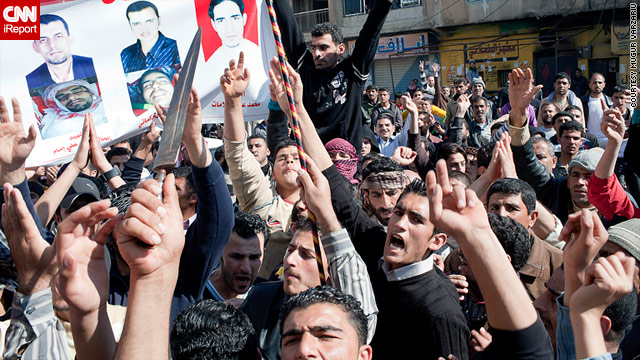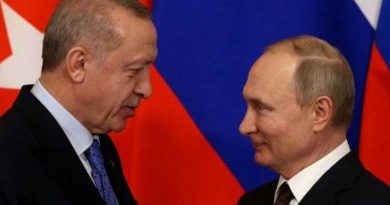Turkey may freeze relations with Greece if Greek Cyprus is given presidency in 2012
EU-candidate Turkey will freeze relations with the European Union if Greek Cyprus is given the EU presidency in 2012, Deputy Prime Minister Beşir Atalay was quoted as saying by the Anatolia news agency late on Saturday. The comments could signal a new low point in ties between the European Union and Turkey, which began accession talks with the bloc in 2005.
They come at a time of heightened tension in the eastern Mediterranean where Turkey is locked in a row with Greek Cyprus over potential offshore gas deposits and Turkey’s relations with one-time ally Israel are frayed.
“If the peace negotiations there [Greek Cyprus] are not conclusive, and the EU gives its rotating presidency to Greek Cyprus, the real crisis will be between Turkey and the EU,” Anatolia quoted Atalay as telling Turkish Cypriot Bayrak Radio and TV at the end of a trip to Turkish Cyprus.
“Because we will freeze our relations with the EU. We have made this announcement, as a government we have made this decision. Our relations with the EU will come to a sudden halt.”
Officials at the European Commission in Brussels were not immediately available for comment.
Austrian Foreign Minister Michael Spindelegger, whose country staunchly opposes Turkey’s EU membership bid, said a stalemate in Turkish-EU membership talks is an opportunity to discuss what he termed a “privileged partnership” with Turkey in some detail. His remarks were aired by Austria’s state-run ORF TV channel on Sunday.
Turkey refuses any formula in its bid to become a member of the 27-nation club short of membership and strictly rejects what Germany and Austria earlier suggested as an alternative to full membership.
The internationally recognized Greek Cypriot administration is due to assume the six-month rotating EU presidency in July 2012.
Greek Cyprus has been divided since a Turkish intervention in 1974 triggered by a brief Greek-inspired coup. UN-sponsored peace talks between Turkish Cypriots and Greek Cypriots have stumbled since they were re-launched in 2008.
In July Turkey’s EU minister said freezing ties with the Greek Cypriot EU presidency was “an option.” While Muslim Turkey started accession talks in 2005, progress has been slow, largely because of the conflict with Greek Cyprus.
The EU says Ankara must meet a pledge to open up traffic from the Greek Cypriot part of the island under a deal known as the Ankara protocol. Turkey says the EU should end its blockade of the Turkish Cypriot enclave.
Adding to tensions is an escalating row between Turkey and Greek Cyprus over Greek Cypriot plans to launch gas explorations around the island.
Turkey has voiced strong opposition to the plans, and on Saturday Turkish Foreign Minister Ahmet Davutoğlu said Greek Cypriot plans amounted to “provocation” and that it would consider carrying out its own offshore surveys with Turkish Cyprus if drilling went ahead.
The Greek Cypriot administration has said it would block Turkey’s EU-entry talks if Ankara continued to oppose the plans. The United Nations has appealed for a peaceful resolution to the dispute, saying both sides of the island should benefit from any energy reserves.
The European Union, this month, told Turkey not to issue threats against Greek Cyprus. Stoking tension in the eastern Mediterranean is a sharp deterioration in relations between Turkey and Israel following the 2010 killing of Turkish activists in an Israeli raid on a ship bound for Gaza.
On Thursday, Prime Minister Recep Tayyip Erdoğan said Turkish warships could be sent to the eastern Mediterranean at any time and Israel could not do whatever it wants there.
Greek Cypriots represent Cyprus internationally and in the European Union, while Turkey is the only country to recognize the Turkish Cypriot state. Greek Cypriots say Turkey cannot join the bloc until the Cyprus conflict is resolved.
The rotating presidency has lost some importance since the EU’s Lisbon treaty, which established a permanent head of the European Council that groups national governments, and a new foreign and security policy chief. But a determined country can still shape the agenda.
Of the 35 “chapters” — policy areas of EU law — Turkey has completed one, and 18 have been frozen because of opposition by EU member states, including Greek Cyprus and France.
Davutoğlu: Greek Cyprus sabotaging peace talks
Davutoğlu, in an interview with CNN Türk on Sunday, said Greek Cyprus aims to sabotage the peace talks aimed at reunifying the long-divided island by going ahead with oil drilling. Davutoğlu said he had expressed the same concern to UN Secretary-General Ban Ki-moon’s special envoy to Cyprus, Alexander Downer, on the phone and that he will also discuss this issue with Ban during his visit to New York to attend UN meetings next week.
Davutoğlu argued that Greek Cyprus is deepening the division of the island by stalling the peace talks through plans to drill oil in the eastern Mediterranean, adding that Greek Cypriots might wait for the peace talks to come to an end and then exploit the natural resources with Turkish Cypriots.
He said if Greek Cypriots say they want to do whatever they want in the region, then this situation is rapidly going toward two states. Davutoğlu vowed that Turkey would sign the continental shelf agreement with Turkish Cyprus in the event Greek Cyprus shrugs off Turkey’s call to stop oil drilling.
The term “continental shelf” refers to the stretch of the seabed adjacent to the territorial waters of a coastal state. Most of the commercial exploitation of the sea, such as hydrocarbon extraction, takes place on the continental shelf.
Turkey earlier said it will sign the agreement on the delineation of the continental shelf with Turkish Cyprus if Greek Cyprus moves ahead with its plans to drill for natural gas, a development set to escalate tensions in the region.
The decision emerged out of talks between Turkish and Turkish Cypriot officials in Turkey, according to a statement from the Turkish Foreign Ministry, released last Thursday.
Sources said the Turkish Republic of Northern Cyprus (KKTC) government might identify some areas claimed by Greek Cyprus as part of its continental shelf in the eastern Mediterranean.
Seyit Arslan contributed to the report from Vienna.
18 September 2011
SOURCE: TODAYS ZAMAN




